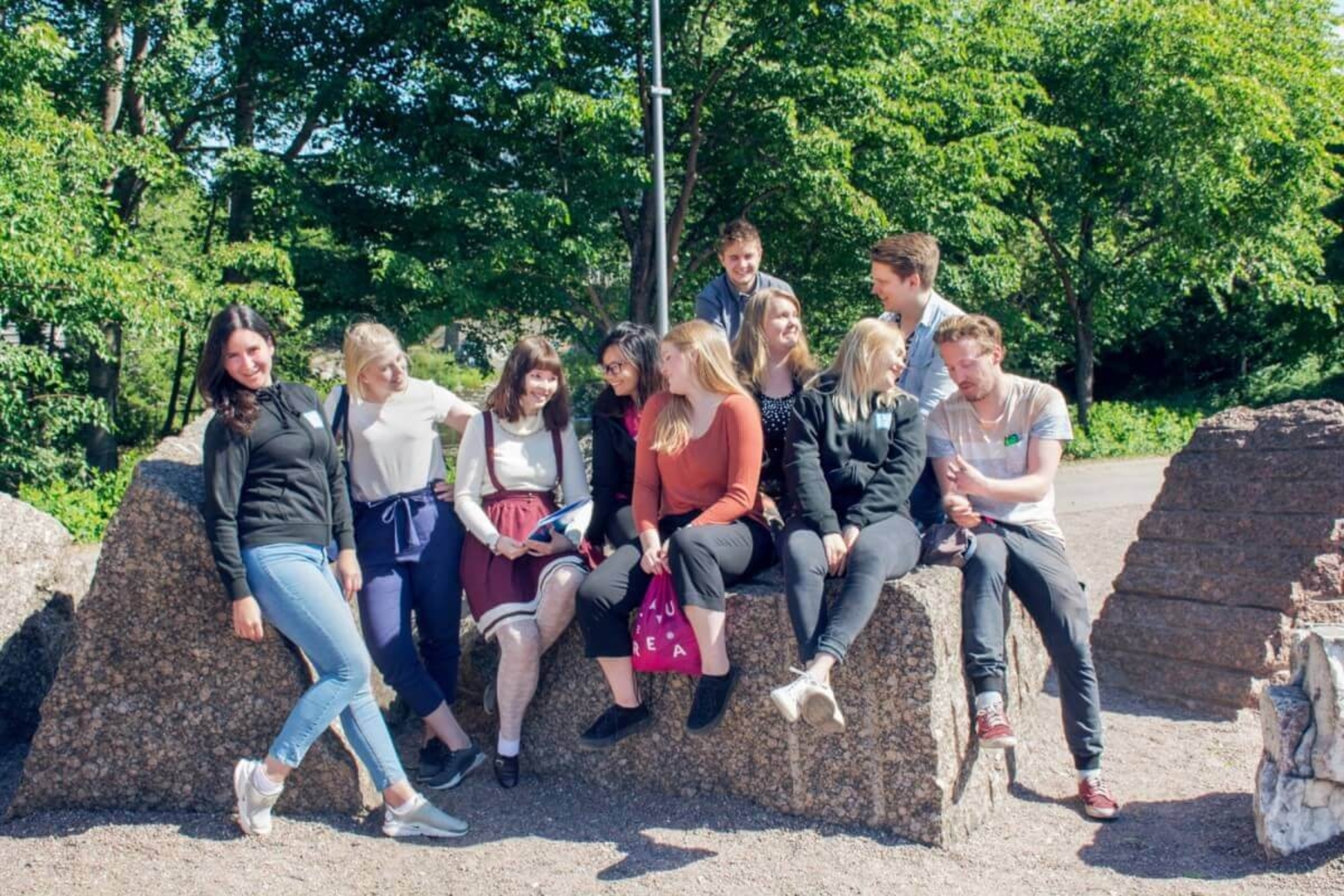Erasmus Policies at Laurea

Erasmus+ documents
ECHE Erasmus Charter for Higher Education.pdf
Erasmus Policy Statement 2021-2027.pdf
Inclusion and Diversity
Laurea has an non-discrimination plan.
Laurea International Services are also represented in Inclusion Academy, a training series focused on the topic of inclusion and widening participation in international programmes and is designed for participants from higher education institutions (HEIs) from Austria, Croatia, Finland, Germany, Iceland and Slovenia. The plenary sessions took place online on the 14 and 16 March 2023. The new series has been created to support higher education institutions in implementing the Inclusion and Diversity horizontal priority of the Erasmus+ programme 2021 – 2027, but its outputs are also applicable for other mobility programmes. The trainings will be delivered by experts in the field of inclusive internationalisation, including: practitioners, academics, experts from the NAs and HEIs, representatives of supporting bodies and student organisations. The Inclusion Academy
Read more about inclusion topics at Laurea's Showcase.
Green Erasmus
Laurea International Services are also represented in Inclusion Academy, a training series focused on the topic of inclusion and widening participation in international programmes and is designed for participants from higher education institutions (HEIs) from Austria, Croatia, Finland, Germany, Iceland and Slovenia. The plenary sessions took place online on the 14 and 16 March 2023.
The higher education sector is expected to demonstrate innovative capacity, so that it can continue to contribute to solving the global social challenges in the next decade. To that end, the Sustainable Development Goals will serve as a reference framework and a source of inspiration.
The Green Erasmus Project (Green Erasmus | EUF (uni-foundation.eu)) started in 2022 in the whole of Europe and the duration of it is two years. In February 2022, the Green Erasmus project and researchers showcased their first reports (Green Erasmus Report) of the survey which was answered by nearly 8000 students either on mobility or that had been on mobility in the past 3 years. With students’ mobility rapidly growing in the last few decades and contributing to internationalization’s carbon footprint, it is crucial to wonder about the environmental impact of Erasmus mobility.
The Green Erasmus project aims to improve the environmental sustainability of the Erasmus+ Programme by raising awareness across the European Higher Education sector and empowering student organizations to be the agents of change. Green Erasmus Portal has been developed by Green Erasmus project to provide students with concrete information on how to be sustainable before, during and after their Erasmus experience. The website gives concrete tips about travel, luggage, accommodation, furniture and equipment, food, energy, waste, and recycling.
Read more:
Environmental responsibility
Green Erasmus: Ideas for a greener exchange
Green Guide for incoming students
3UAS Green Exchange Ambassador and Green Exchange Guidelines
Laurea, Metropolia and Haaga-Helia have actively collaborated in the framework of 3UAS and Green Exchange. In 2022 we started the Green Exchange Ambassador program where students from these UAS are posting their experiences and thoughts regarding greener choices before, during and after their exchanges around the world. You can follow these stories on each UAS social media, in Instagram for example.
Green Exchange Guidelines have been published 2022. This guide is an easy guide with concrete tips for action for students with links. Also note that students can get a top up to their normal grant if they travel in a greener way. This applies to teacher and staff exchanges as well. More info can be found in Laurea Intranet.
Digitalisation
Digital education and the digital transformation are a horizontal priority for the Erasmus+ programme, in line with the strategic priorities of the EU’s Digital Education Action Plan (2021-2027). This is reflected in the ECHE in the commitment of the higher education institutions to implement the priorities of the Erasmus+ Programme, by undertaking the necessary steps to implement digital mobility management in line with the technical standards of the European Student Card Initiative. The European Student Card Initiative is furthermore one of the flagship initiatives of the European strategy for universities.
Laurea is fully implementing Erasmus Without Papers Policies in terms of partnership agreements and online learning agreements. Laurea is aiming to become a paperless university of applied sciences. We continue to develop the digital competences of our students and staff.
Laurea will implement the European Student Card Initiative in the near future to support the students during their mobility. The European Student Card Initiative includes the development and continuous enhancement of the Erasmus+ Mobile App, which facilitates the Erasmus+ mobility of mobile learners. The app provides them with an easier entry point to information about mobility opportunities, digitalised administrative procedures and helps them connect to a digital community of mobile learners.
Read more about Digivisio2030 initiative in Finland.
Also read ECHE monitoring guide for Erasmus+ national agencies